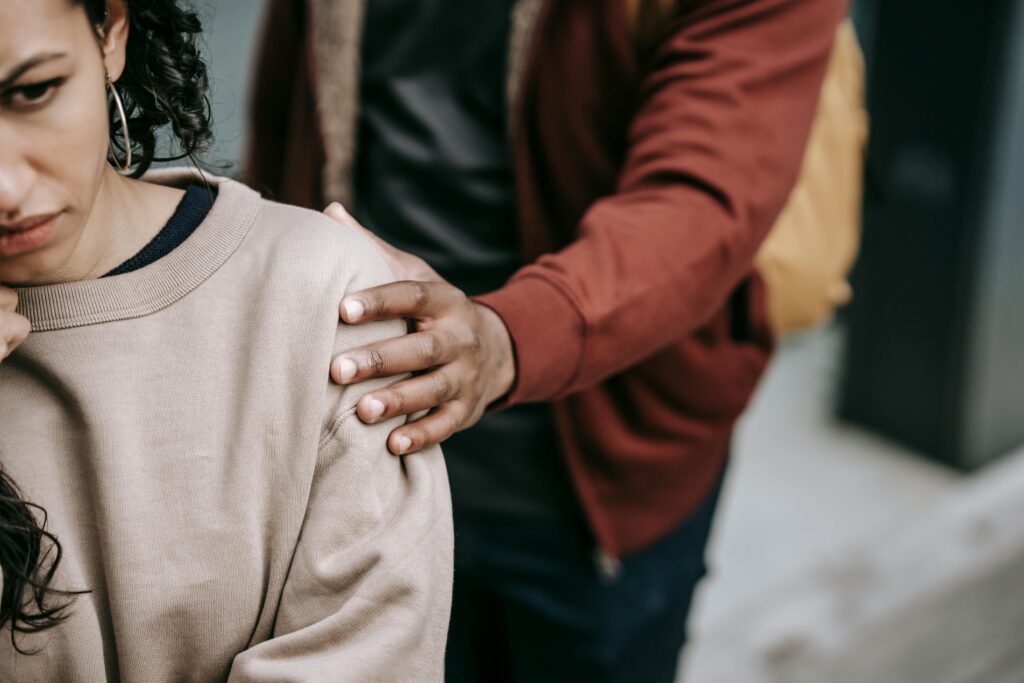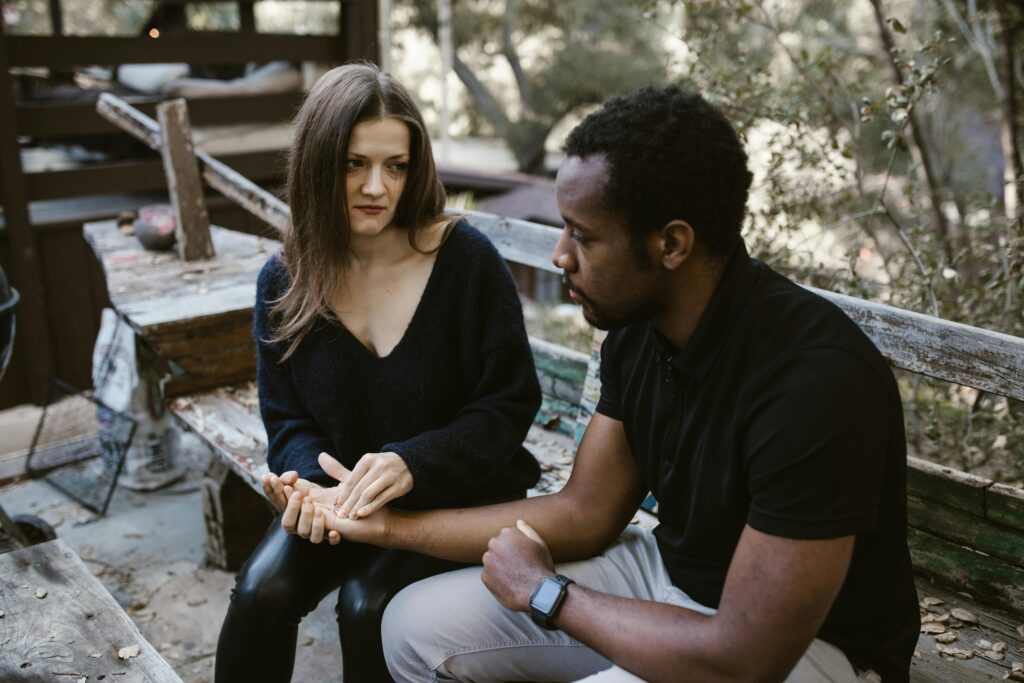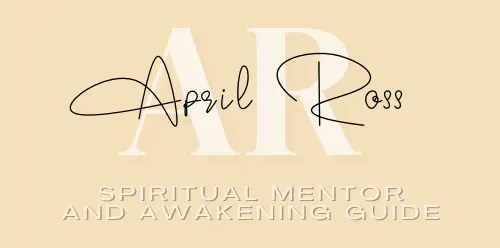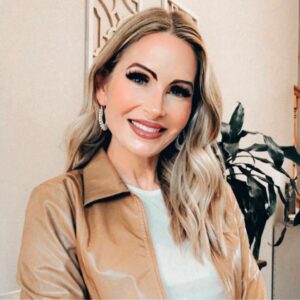“The opposite of anger is not calmness, it’s empathy.” ~Mehmet Oz
I lay on the couch sobbing, leg pulsing with the pain of my injury, heart beating out of my chest, and I thought to myself, “When will this finally stop?!”
The angry outbursts. The aggression and volatility. The threats and intimidation. The manipulation and coercion. The lack of accountability.
We weren’t even together anymore, and yet, somehow I was still trapped in the cycle.
I had just experienced another hostile rampage from my former partner, sending my nervous system into shock and causing me to momentarily black out and lose my grip on the very heavy leaf dumpster I was pulling across the lawn. It crashed on top of my right leg, sending excruciating jolts of pain through my body. I suffered a severe muscle contusion, which would take months to recover from and to this day has not fully healed.
This time, the rampage was spurred by the upcoming release of my book… a memoir about my journey back to self. My former partner was, of course, part of that story, so it would have been impossible to leave him out. The retelling of the events of my life… including some that were not so favorable… caused him to react with the type of volatility I had seen him use many times before, both toward me and toward our son.
Threats. Intimidation. Posturing. Verbal aggression. Devaluation.
It just so happened to be the type of volatility I had also witnessed with my caretaker.
I remembered it all, and, as I lay there in a daze on the sofa, the reality set in…
I had been married to what clinical psychologists would likely call a narcissist.
Not only that, but an aggressive and explosive narcissist who everyone in my circle thought was the perfect catch. [It’s funny how people are expert judges of character while at the same time naive to what goes on behind closed doors.] Until I began my work in therapy, I had no awareness of what narcissism truly was, or that I had been living it firsthand. The toxic, codependent, and destructive relationship I endured for years had presented itself as a seemingly normal marriage.
It wasn’t until I had been in therapy for quite some time that I realized that I had chosen a partner who mirrored back to me the familiar patterns from my childhood. A partner who on a subconscious level created the same type of chaos and hierarchy of control that I had witnessed from my caregiver. The reason I had normalized these behaviors in our relationship, and perhaps did not recognize the harm they were doing, was because I had no model for what a healthy relationship should look like. The repeating patterns and behaviors seemed familiar and normal.
This is not to say that I was an innocent player in the partnership, either. I certainly wasn’t. (I lay out all my shortcomings in my book if you’re curious.) Prior to starting my healing journey, I admittedly displayed my share of toxic traits and made my share of mistakes. Later on, I became aware of how I had enabled this power struggle. How on a subconscious level, I had unknowingly and unintentionally played into the power struggles and the toxic cycles because that was what I had known.
My supposedly good heart and incessant need to be the giver and the peacekeeper was actually just masking my own unhealthy way of getting my needs met. That, coupled with my lack of boundaries and fear of conflict, made me the perfect complement to this toxic relationship dynamic.
After this relationship ended, it was hard to stop replaying the harmful episodes in my mind and to restabilize my nervous system. It was hard not to blame myself for catching it sooner, nor for recognizing my part in it. I felt guilty for the impact our relationship dynamics had on our children, and even more guilty that I allowed myself to stay trapped in an unhealthy marriage for so long.
Even after we had parted ways and I had cut off all face-to-face contact with my former partner, there was a period of time where I felt as if I still had to defend myself. Defend myself against the maltreatment. Defend myself against the manipulative tactics. Defend myself against the triangulation. Defend myself against family members who took my former partner’s side and continued re-traumatizing me through their contact with him.
And, in some ways, I did. Because I was still tied to him through our children, which opened the door for him to continue inflicting harm upon me.
But as my healing journey has progressed, and as I have learned to create healthy boundaries and distance, I no longer have the desire to play the blame game or to keep replaying painful and traumatic experiences in my mind. I recognize and forgive my own hurtful behavior as well as the harmful behavior of my former partner, and have tried my best to see our behaviors through a higher perspective.
I see the woundedness each of us carried at the time, as well as our lack of self-awareness. I see the small child in each of us who was fighting for love and attention. I see how we did the best we could with the knowledge and tools we had at the time and yet how we ended up falling short and hurting one another in the process.
Today, I wish to move forward with the lessons and share what I have learned about the empath-narcissist dynamic to help others who may find themselves in a similar situation.
First, let’s begin with some of the key characteristics of this codependent relationship dynamic.
Typically the empath in the dynamic is the giver… a sensitive type who has a natural nurturing ability and desire to help others. In contrast, the narcissist is the taker… someone who craves validation and uses others to get his/her emotional needs met.
Unlike the empath, who feels deeply, cares deeply, and often puts others’ needs before their own, the narcissist has much more self-centered and self-preserving objectives. They seek partners who can not only meet their emotional needs but who also boost their self-image, supply them with a source of control, and serve as a target to project their anger and pain.
“The empath wants to love and support their partner, so they give, often beyond their own boundaries, to the narcissist who enjoys the attention” and continues taking.
Psychologists say that both the narcissist and the empath share one thing in common: childhood trauma. Each of them lacked a nurturing and safe environment, causing them both to seek unhealthy and sometimes destructive ways to receive love as adults. One or both of them has experienced some form of neglect, abandonment, or rejection.
The Empath Feeds the Narcisst's Needs
Coupled with the empath’s tendency to overgive, he/she is also the main supply of the narcissist’s emotional, energetic, and physical needs. Because of the empath’s own woundedness, he/she will often feel sorry for the narcissist and feel responsible for meeting their needs and regulating their emotions. This comes at the expense of the empath neglecting his/her own needs.
Some refer to narcissists as energy vampires. This term reflects their reliance on others for love and positive energy, as they struggle to cultivate self-love and a positive self-image. As a result, they frequently seek partners who possess healing and nurturing qualities, drawing from them the sustenance they lack within themselves.
In both cases, the empath and the narcissist’s behaviors are about self-preservation, about getting their needs met. “The empath’s desire to heal the narcissist and the narcissist’s desire to be seen and loved can lead them into a codependent relationship where both are seeking validation from the other.”

There is a Relational Imbalance
Finally, because the empath overly gives and the narcissist overly takes, this relational dynamic is often very imbalanced. Both share the responsibility for creating this painful, unbalanced relationship and both actively enable it. The empath’s strong desire to help, nurture, and heal contrasts the narcissist’s constant craving for attention, validation, and emotional support.
A common outcome of this imbalance is that the empath may feel deeply exhausted, both emotionally and physically, and may even develop a sense of resentment since their own needs are not being met. This occurs because the narcissist’s past experiences limit their capacity to reciprocate the same kind of love, support, and energy that the empath brings to the relationship. As a result, these types of relationships frequently prove to be unsustainable.
This is just a small glimpse of what this relational dynamic can look like.
If you go online, you will find an overwhelming number of articles, videos, and perspectives, as this type of pairing is rather prevalent. [See end credits for a few references.]
A common theme you may encounter in these narratives is that narcissists are “bad” and empaths are “good.” However, I’ve come to understand… the more I have spiritually awakened and done my own healing work… that this is not entirely true. The separation of people, the blaming and the judging, is something we humans do to feel better about ourselves and to feel safe. There can be varying degrees of narcissistic and empathetic traits on the spectrum.
While a narcissist’s behaviors may be destructive, harmful, and emotionally or psychologically abusive, we must also be careful not to label people as good or bad or to condemn others to a lifetime of suffering.

After all, can we truly say that a person is bad for having childhood trauma that significantly impacted their ability to function healthily in relationships?
Can we truly say that a person is bad for never being shown how to love in a healthy and genuine way?
Can we say that a child had control of the environment in which they were raised?
Or… is it more so that some people have not yet mastered the accountability, self-awareness, and empathy needed to overcome this trauma?
That some people are afraid to set their pride aside for the sake of humility and healing as a form of self-preservation?
While yes, I could give one hundred real-life, personal examples of my entanglement with narcissists and how they caused hurt and destruction in my life, I have chosen to move beyond that narrative in search of a more humane and compassionate perspective. And that is, we should never wish pain and ill will against someone whose trauma is so great that they have had to move through life desperately seeking to feel and experience love and safety. Instead, we should wish them healing.
That is not to say that we should enter into relationships with unhealed or unhealthy people, or that we should tolerate narcissistic, manipulative, abusive, or unjust behavior.
Absolutely not. I firmly believe in setting boundaries and removing yourself from these situations. Those who exhibit these harmful traits cannot cultivate a healthy relationship until they take responsibility for their actions and commit to their own healing journey.
It’s important to recognize that beneath their facade, narcissists are often like wounded children trapped in adult forms. Instead of harboring negative feelings towards them, we should wish that their life experiences and karmic lessons will awaken to their true Divinity and heal the parts of themselves that have been abandoned or rejected. Our wish should be for them to eventually move beyond the unhealthy coping strategies and patterns they have created to survive.
For both narcissists and empaths, our wish should be for them to someday find the love they seek, which has been inside of them all along.
This is my hope for our world. And this is my hope for you.
We are all on a journey to love ourselves and each other better.
May we someday get it right. ♥
©2025 Divine Soul Guidance
Recommended articles:


 orker, and spiritual mentor who guides others on their awakening journey to heal from unhealthy patterns and behaviors, free themselves from the past, and step into becoming their most authentic, aligned selves. She is the author of Bravely Becoming © 2021 and the course creator of Soul Awakened, a step-by-step guide to navigating the awakening process.
orker, and spiritual mentor who guides others on their awakening journey to heal from unhealthy patterns and behaviors, free themselves from the past, and step into becoming their most authentic, aligned selves. She is the author of Bravely Becoming © 2021 and the course creator of Soul Awakened, a step-by-step guide to navigating the awakening process.
